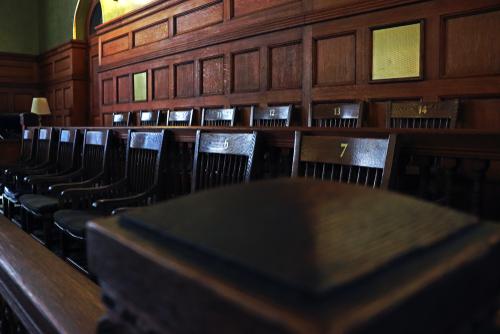What Steps Are Followed When Litigating a Civil Lawsuit?

Civil litigation is the legal term for a conflict being settled in court. These conflicts can be between two or more parties, and they typically involve business deals and/or monetary disputes. If the parties, also known as the plaintiff and the defendant, cannot come to an agreement themselves, they will take the case to court to have a judge or jury make a final decision. Civil litigation cases have a specific procedure that is followed to ensure that all of the parties have a fair legal hearing.
A Guide to the Litigation Process
Any legal process may seem complicated because of the use of legal jargon. However, when the procedure is broken down and explained in layman's terms, it becomes relatively self-explanatory. A civil case will typically involve the following steps:
- Complaint and Response: The process must first begin with an initial complaint from a plaintiff about the defendant. The complaint will lay out all of the issues that the plaintiff has with the defendant. The defendant will then file an answer in response to the alleged wrongdoing.
- Discovery: This is typically the longest part of the litigation process. During this step, both parties will gather and exchange information relevant to the case. This can be done through depositions, interrogatories, and subpoenas. The discovery stage is meant to prepare the attorneys for each side to argue on their clients’ behalf.
- Settlement or Trial: Trials can be expensive, and they can take a long time to finalize. As a result, judges will encourage the parties to try to reach an agreement outside of the courtroom. This can be done through mediation, arbitration, or other forms of alternative dispute resolution. A settlement is another term for the agreement that parties reach outside of court. Unfortunately, this is not always possible. If a settlement cannot be made, a trial will be scheduled with the court. This can include a jury if requested; however, it is not a requirement. For trials without a jury present, also known as a “bench” trial, the judge will be the final decision-maker. The trial will include the information gathered in the discovery stage, such as witness statements and evidence.
- Closing: After all of the evidence is presented, each party will provide a closing statement to give their final arguments. The judge or jury will then come to a decision about whether the defendant is responsible for the damages claimed by the plaintiff. If the defendant is found liable, the judge or jury will decide what amount will be awarded to the plaintiff.
A Milwaukee Civil Litigation Lawyer Can Help
Whether you are a person filing a complaint or need to defend against a civil claim in court, it is crucial to have an experienced attorney on your side. At Gimbel, Reilly, Guerin & Brown, LLP our attorneys can provide you with the legal representation you need and help you reach a positive outcome to your case. If you need help in the state or federal courts of Wisconsin, contact our Milwaukee, WI civil litigation attorneys at 414-271-1440 to set up a consultation.
Sources:
https://www.thebalancecareers.com/introduction-to-civil-litigation-2164619
https://www.uscourts.gov/about-federal-courts/types-cases/civil-cases







